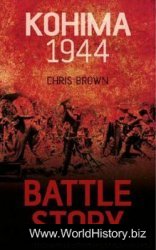The Newburgh conspiracy occurred during the winter of 1782-83, when officers in the Continental army threatened to coerce the Second Continental Congress into providing pensions after the war. General George Washington defused this potential conflict between the military and civilian authority in the new republic by refusing to countenance any military interference in politics.
As the Revolutionary War (1775-83) wound to a close in 1782, many officers began to express concern that Congress would not keep its promise of lifetime pensions at half pay for officers. With no guaranteed revenue, Congress appeared unlikely to be able to provide even the back pay owed to the army. In the last week of December, a group of officers sent a petition to Congress asking for compensation, either in a lump-sum payment or a full pension for a set number of years. Nationalist leaders in Congress, such as Robert Morris, seized the opportunity of this petition to work toward creating additional revenue for the federal government under the Articles of Confederation. The exact details of the nationalist manipulations remain unclear, but they apparently encouraged the most extreme military officers, led by Horatio Gates, to threaten mutiny and a possible coup d’etat if their demands were not met.
The crisis came to a head in March 1783 at the military cantonment in Newburgh, New York, when army officers issued two addresses anonymously. These addresses argued that the officers should abandon “milk-and-water style” and moderation, and demand Congress recognize their sacrifices and provide pensions. They urged that the officers act immediately before the army disbanded and implicitly threatened military action. The addresses called for a meeting on March 11. At this point Washington stepped in to prevent the officers from plunging “themselves into a gulph of Civil horror.” He agreed to a meeting on March 15—the extra days would allow tempers to cool—and suggested that Gates preside. As soon as the meeting began, Washington entered and requested to speak. Gates could not deny the commander in chief the floor. Washington agreed that the officers had a legitimate complaint and talked of all of their sacrifices, but also exclaimed “My God! What can this writer [the author of the addresses] have in view, by recommending such measures? Can he be a friend of the army? Can he be a friend of the country? Rather is he not an insidious foe?” Opposition to Washington disintegrated and the conspiracy came to naught. Within days news of the peace agreement arrived and the army began to peacefully disband.
There were several important ramifications of the Newburgh conspiracy. First, the nationalists in Congress managed to pass an impost, although it was never put into effect because of the failure of all 13 states to ratify the measure. Second, Washington emerged from the controversy with an enhanced reputation. Third, and most significant, the army avoided interfering in politics. Other revolutions have ended with a military coup and dictatorship. The American Revolution eluded a similar fate, and in the United States the military would remain subordinate to civilian authority.
Further reading: Richard H. Kohn, The Eagle and Sword: The Federalists and the Creation of the Military Establishment in America, 1783-1802 (New York: Free Press, 1975).




 World History
World History









